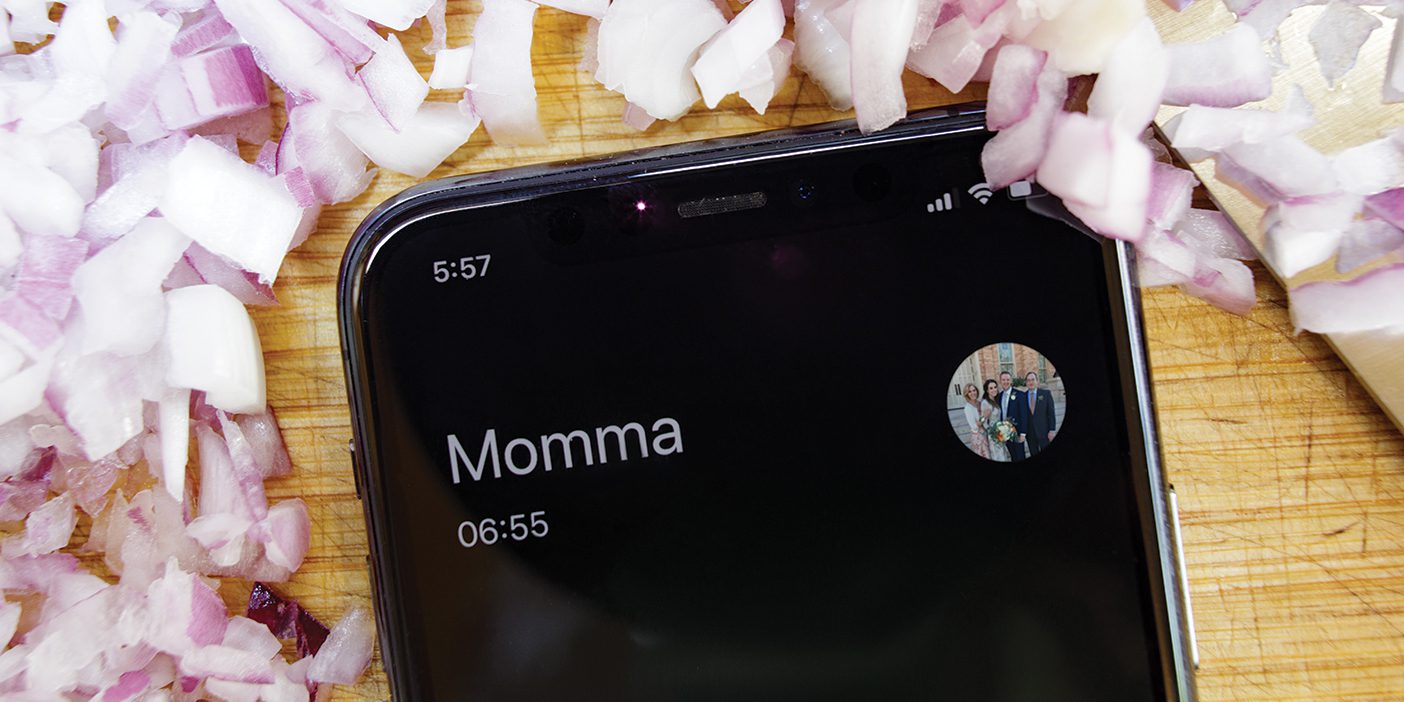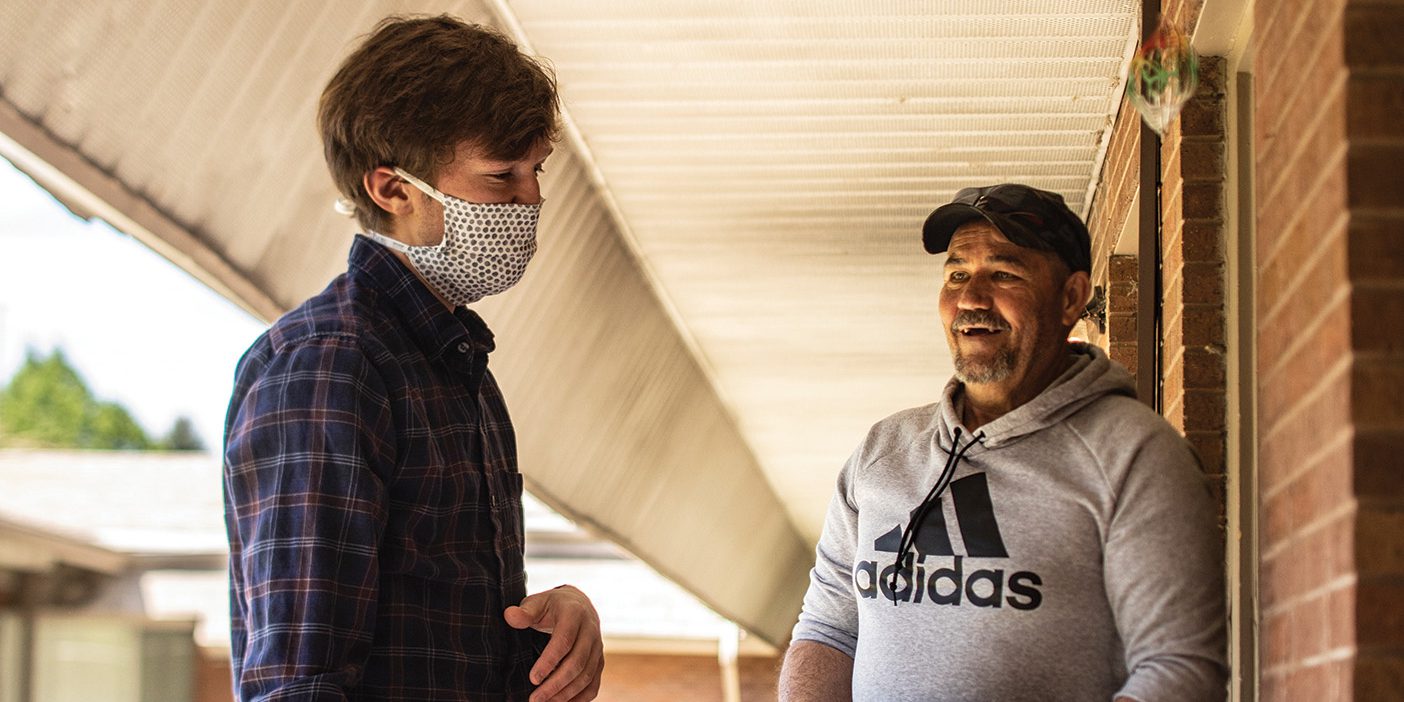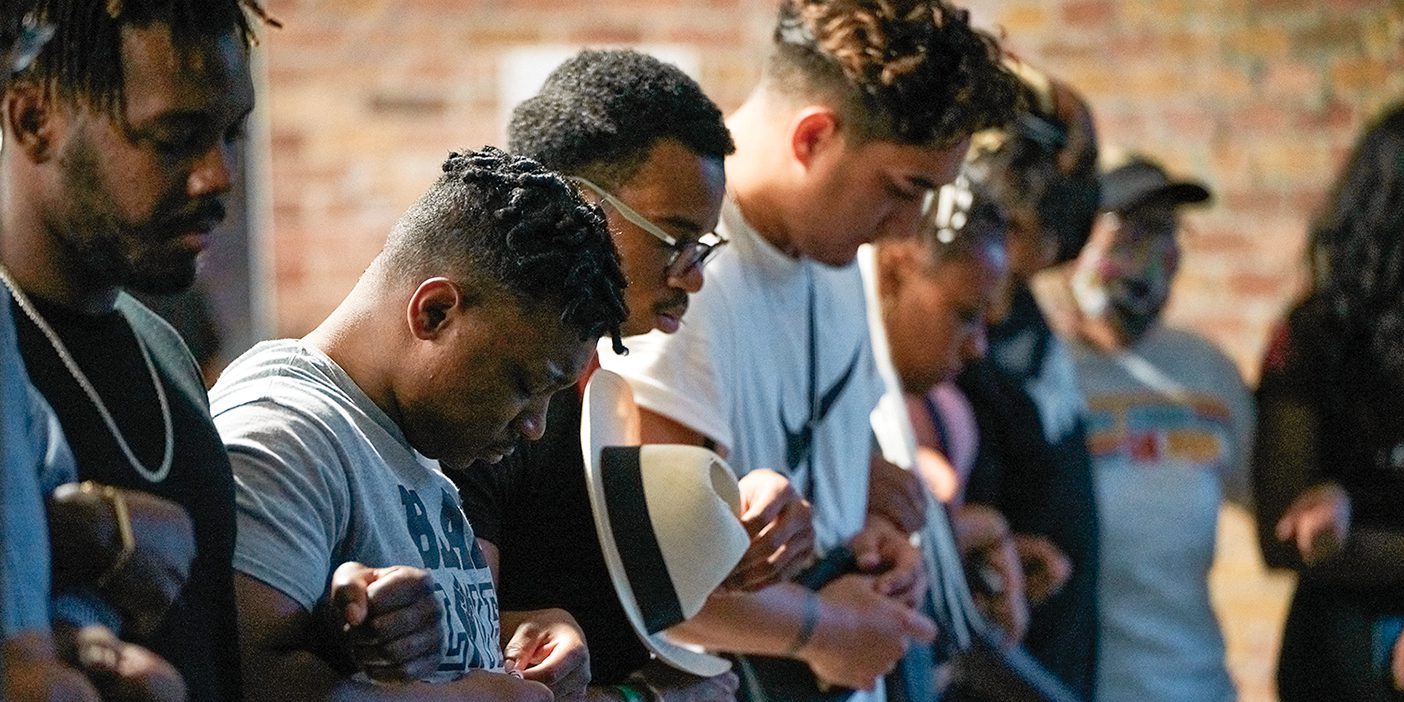For this alumna, phone conversations about little things help to fill the lonely spaces.

“Mom, can you hear me?”
“Yes, but I have you on speaker. That okay?”
I hear the muffled clang of dishes being dipped into the kitchen sink, tinny and faint. Speakerphone is fine with me—I’m chopping onions and sniffling with every inhale. I smush my cell phone into my ear with the top of my shoulder until the bulb is fully minced.
Many phone calls with my mom happen this way: one of us is either en route or in medias res. But these little conversations babbled into cell phones have kept us close in the nearly eight years since I moved away to college and then to other places far from home.
It’s the short calls that always scratch an itch, like when I’m in the spice aisle at the grocery store and can’t remember her preferred brand of salt. The internet will never hold the answer, composing a text feels arduous, and I want to hear her voice. She picks up on the first ring, and we laugh about our unfortunate knack for over-salting.
Calls with my mom usually start off about nothing, like what she’s reading for book club or the signs that my New England winter has finally decided to thaw. But sometimes that nothing weaves itself into the small details of her life that I hardly ever get to see, or my candid response during the anxious months of a pandemic when she asks, “How are you doing, Sweetie?”
Every time I hang up after those calls, a forlorn bluegrass lyric—from “Calling My Children Home” by the Country Gentlemen—echoes in my head: “I’m lonesome for my precious children, they live so far away.” The words “call ended” on my phone screen always make me think that my mom is lonesome for me and that I’m just as lonesome for her.
But there was a time I never felt far from my mom, because the evidence of her was all around me. When I was a child living at home, I could tell when it was my mom climbing the stairs. She trod on the stairs lightly, taking her time to avoid the squeakier one that neared the landing. She wrote notes on napkins and put them in my lunchbox. She was the first to read the newspaper and left it on the kitchen table, slightly puckered, for other eyes to scan. Her handiwork was a vase full of lilies of the valley. My childhood home had traces of her everywhere.
Now that we don’t live under the same roof, my mom’s voicemails are my mementos. Our game of phone tag will endure in perpetuity, but she still leaves a message in a voice that I know is her most relaxed and authentic. She reserves that voice, unvarnished and uninhibited, for the ones she loves the most.
Today, I tell her about a recent blunder, and she emits a gratifying bout of laughter. I can picture her on the other end of the phone, pitching her head back slightly and squeezing her eyes shut in mirth.
Staying home to combat a virus makes every day feel like a Sunday afternoon, when our time to talk inexplicably expands. Neither of us is haphazardly carrying on the conversation while driving, less multitasking clears the audio of rustling or interruption, and there are larger swaths of time to take as we please. Only then does my mom stop feeling so far away.

I wonder if this is how things will be forever, or if the future will bring us closer in physical proximity—despite so much uncertainty. Will our calls one day be as short as “I’m outside!” because we can see each other face to face?
That Americana tune ends with the wistful parent resigned about the beloved child’s continued distance: “Oh, may they hear my calling and come back home someday.”
For now, I feel lucky that the distance from my mom is just spatial, our relationship untainted by resentment and unmarred by illness or death. Thanks to a customized ringtone and eight years of habit, I can always hear her calling.
Share a Family Story
In Letters from Home BYU Magazine publishes essays by alumni about family-life experiences—as parents, spouses, grandparents, children. Essays should be 700 words and written in first-person voice. BYU Magazine will pay $350 for essays published in Letters from Home. Send submissions to lettersfromhome@byu.edu.












